Comparison: Audi Q8 e-tron vs BMW iX vs Mercedes EQE SUV
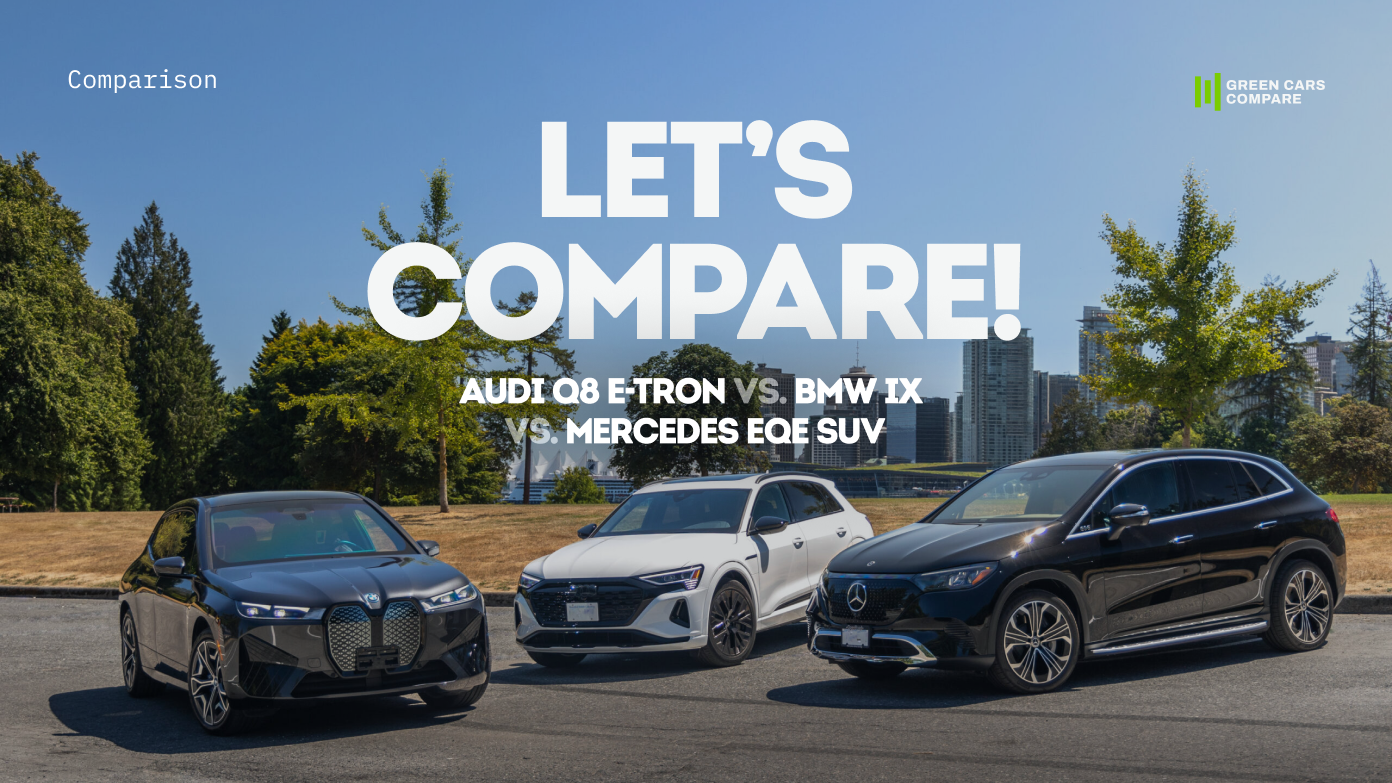
The Audi Q8 e-tron, BMW iX, and Mercedes EQE SUV stand as titans in the electric SUV realm, each bringing distinct strengths and configurations to the table. In this comparison, we’ll dive into their mid-tier offerings: the Q8 e-tron 55 quattro, iX xDrive50, and EQE SUV 500 4MATIC.
Table of Contents
Key Information
Price
Priced at $74,400, the Audi Q8 e-tron 55 quattro delivers luxury without breaking the bank, standing as a cost-savvy option next to the BMW iX xDrive50 at $87,250 and the $89,500 Mercedes EQE SUV 500 4MATIC.
Exterior
The BMW iX flexes its muscles with a dynamic and daring look, contrasting with the Mercedes EQE SUV’s composed, executive poise. The Audi Q8 e-tron gracefully bridges the gap, merging fierce confidence with refined prestige.
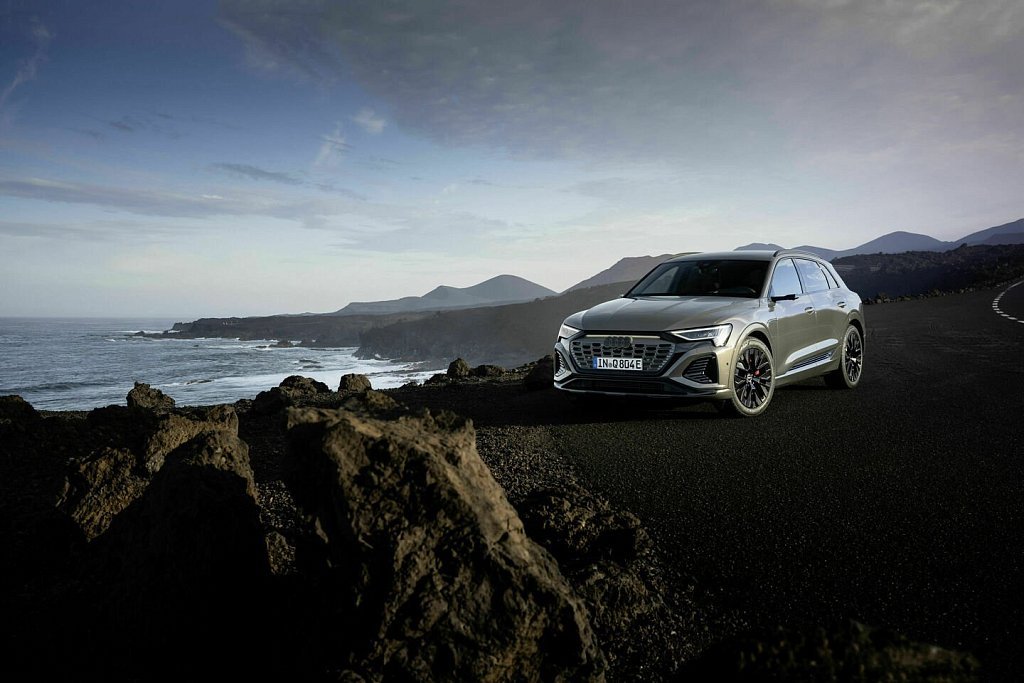
Interior
The Audi Q8 e-tron dazzles with its tech-forward cabin, featuring Virtual Cockpit, dual touchscreens, and a flat floor for added space. The BMW iX blends sleek modernity with innovation, offering a curved display, hexagonal steering wheel, and electrochromic panoramic sunroof. Meanwhile, the Mercedes EQE SUV emphasizes luxury, boasting ambient lighting, heated seats, and options like massaging seats and a four-zone climate system, though it offers slightly less cargo room.
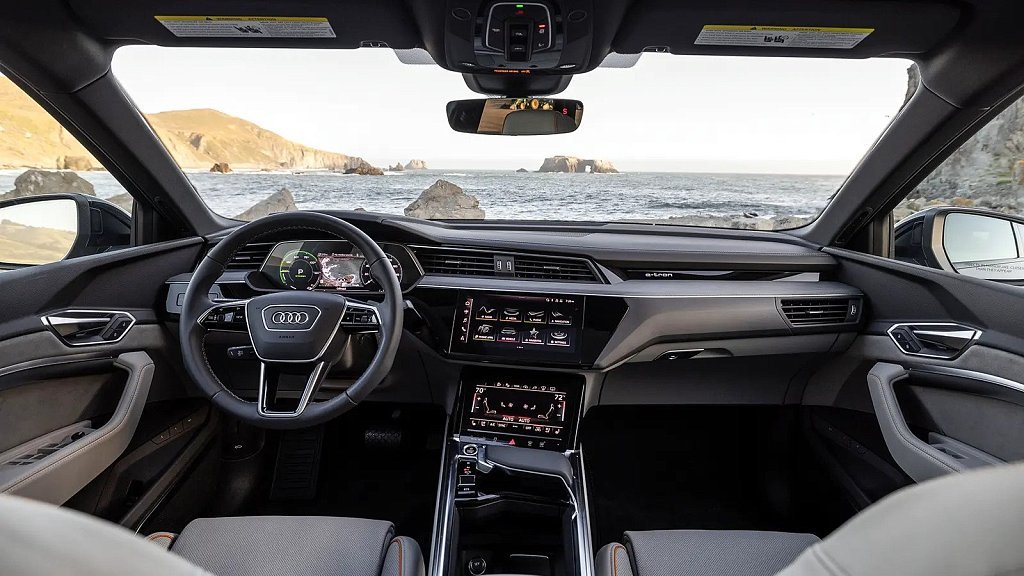
Technology
Audi’s Q8 e-tron delivers a dual-screen system and comprehensive safety tech, BMW’s iX excels with a futuristic dashboard and optional hands-free driving, and Mercedes’s EQE SUV stands out with its intuitive MBUX interface and augmented reality navigation.
Range and Efficiency
BMW offers the longest range and largest battery, and Mercedes prioritizes efficiency.
EPA Range
Audi — 285 mi (459 km)
BMW — 307 mi (494 km)
Mercedes — 282 mi (454 km)
Battery Pack Capacity (Usable)
Audi — 106 kWh
BMW — 108.8 kWh
Mercedes — 96 kWh
Charging
All vehicles feature a 400V architecture, but BMW charges a bit faster at AC and DC charging stations compared to Audi and Mercedes.
On-Board Charger (AC)
Audi — 9.6 kW
BMW — 11 kW
Mercedes — 9.6 kW
DC Charging
Audi — 170 kW
BMW — 195 kW
Mercedes — 170 kW
Performance
The BMW iX stands out with the quickest acceleration, while the Mercedes EQE SUV offers the highest top speed.
0–60 mph (0–98 km/h)
Audi — 5.4 s
BMW — 4.4 s
Mercedes — 4.7 s
Top Speed
Audi — 124 mph (200 km/h)
BMW — 124 mph (200 km/h)
Mercedes — 130 mph (210 km/h)
Dimensions
In terms of size, the BMW iX is larger in every dimension compared to the Audi Q8 e-tron and Mercedes EQE SUV.
Length
Audi — 193.5 in (4,915 mm)
BMW — 195 in (4,953 mm)
Mercedes — 191.5 (4,863 mm)
Width
Audi — 86.2 in (2,189 mm)
BMW — 87.8 in (2,230 mm)
Mercedes — 84.3 (2,141 mm)
Wheelbase
Audi — 115.3 in (2,928 mm)
BMW — 118.1 in (3,000 mm)
Mercedes — 119.3 in (3,030 mm)
Cargo and Towing
The Audi Q8 e-tron excels in towing capacity and offers a handy frunk, while the BMW iX boasts the largest overall cargo space.
Towing Capacity
Audi — 4,000 lbs (1,814 kg)
BMW — not rated for towing in the US
Mercedes — 3,500 lbs (1,587 kg)
Cargo Volume (Trunk)
Audi — 20.1 ft³ (569 l)
BMW — 17.7 ft³ (500 l)
Mercedes — 18.4 ft³ (520 l)
Cargo Volume (Max)
Audi — 57.8 ft³ (1637 l)
BMW — 61.8³ (1750 l)
Mercedes — 59.2 ft³ (1675 l)
Cargo Volume (Frunk)
Audi — 2.2 ft³ (62 l)
BMW — no frunk
Mercedes — no frunk
Verdict
If you’re after a balanced performer with practical features, the Audi Q8 e-tron fits the bill, offering towing strength and a spacious cabin. For cutting-edge technology and maximum range, the BMW iX is the clear winner, designed for drivers who value futuristic design and power. The Mercedes EQE SUV excels at delivering executive-level luxury, appealing to those who prioritize comfort and premium finishes.
While these electric SUVs can be a fantastic deal on the US used EV market, checking their history is always a good idea. With our partner GoodCar, you can easily check the chosen EV by entering the VIN or license plate.
Explore our dedicated comparison tool to pinpoint the key differences between these three German luxury SUVs, helping you make the perfect choice.



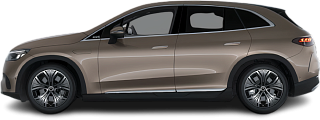
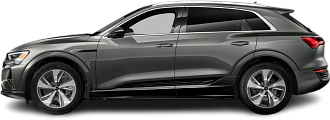
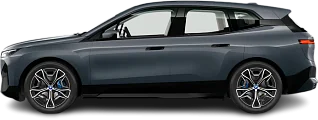
Discussion